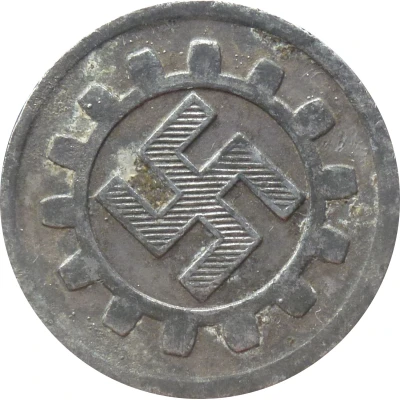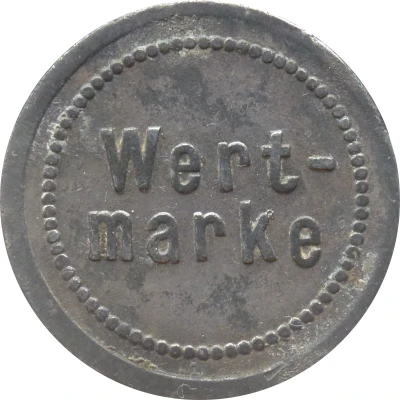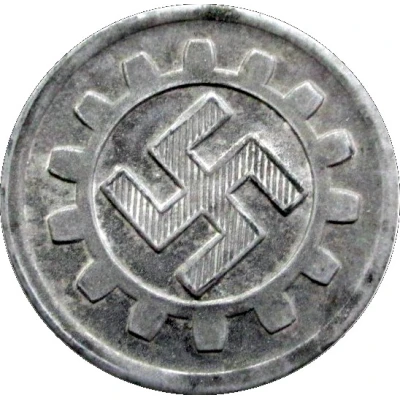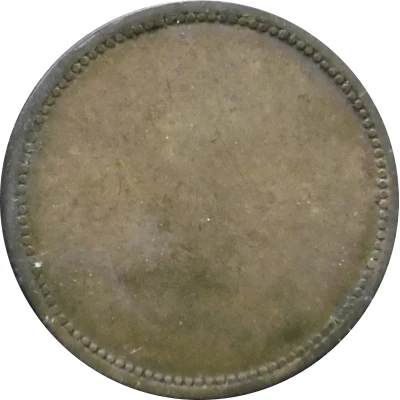


© Willem63 (CC BY-NC-SA)
Wert-Marke - Berlin Deutsche Arbeits Front ND
| Zinc | 3.4 g | 22.9 mm |
| Location | Germany (1871-1948) |
|---|---|
| Type | Trade tokens › Business tokens |
| Years | 1933-1945 |
| Value | 20 Pfennigs (20 Pfennige) (0.20) |
| Composition | Zinc |
| Weight | 3.4 g |
| Diameter | 22.9 mm |
| Thickness | 1.3 mm |
| Shape | Round |
| Technique | Milled |
| Orientation | Medal alignment ↑↑ |
| Demonetized | Yes |
| Updated | 2024-11-14 |
| Numista | N#358126 |
|---|---|
| Rarity index | 100% |
Reverse
Lettering:
WERT-
MARKE
Edge
Plain
Comment
During the National Socialist era, the Deutsche Arbeits Front (DAF) was the unified association of workers and employers based in Berlin (from 1935 in the Hohenzollerndamm office building in Berlin-Wilmersdorf.The DAF was founded on May 10, 1933 after the Free Trade Unions had been broken up. Their assets were confiscated in favor of the DAF and the right to strike was abolished. All professional organizations of white-collar workers and workers were brought together with the law of 20 January 1934 for the regulation of national work; the DAF became by far the largest Nazi mass association. In October 1934, the DAF was officially affiliated with the NSDAP. It was organized according to the leader principle down to the block warden and was subordinate to the Reich organization leader of the NSDAP Robert Ley, who acted as "a kind of trustee of the national community". Instead of a trade union representation of interests, the education of employees and entrepreneurs in the sense of the NS ideology came. Divided into 18 Reichsbetriebsgemeinschaften (later 16 specialist offices) and 33 district administrations, the DAF existed until May 1945 with 22 million members. Only those who were able to work had value; all people who were classified as Jews or "Jewish half-breeds of the first degree" according to Nazi criteria and who were considered "minor race" for other reasons or who were considered "incapable of community" for political reasons were excluded. Forced labor was also part of the practice of persecution.



